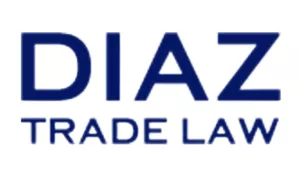- within International Law topic(s)
On July 18, 2025, the Court of International Trade (CIT) granted the government's motion for default judgment against importer Rayson Global and its owner, Doris Cheng, for negligently failing to pay duties.
The Case
The government's case was filed in 2023, alleging that the importers had falsely declared that Chinese-origin goods as Thai origin to evade duties. The government asserted this false declaration avoided payment of ordinary 6% duties, Section 301 duties ranging from 10% to 25%, and 234.51% antidumping duties.
The government asked the court to impose a penalty for negligence. The penalty amount is twice the loss of revenue or the domestic value, whichever is lower. After the importer failed to answer the complaint (a huge mistake), the U.S. moved for summary judgment.
The CIT granted the government's motion and ordered the importer to pay a nearly $3.4 million penalty as well as all unpaid duties, taxes, and cash deposits on the unliquidated entries in question.
Duty Evasion is on the Rise
This case is just one example of the growing incentive to cheat that comes with higher tariffs. Whether it's through misclassifying goods, undervaluing imports, or using deceptive transshipment routes, some companies are turning to creative or outright illegal strategies to reduce their tariff liability.
These incentives have even contributed to the emergence of a cottage industry of "tariff reduction" companies that suggest ways to cut import costs. However, many of these so-called strategies amount to evasion, putting importers at serious civil and criminal risk.
The Department of Justice (DoJ) and U.S. Customs and Border Protection (CBP) have both made clear that duty evasion is a top enforcement priority.
Now more than ever, it is critical for importers to examine their import compliance programs and ensure that adequate procedures are in place to correctly enter goods into the United States. Importers should proactively conduct extensive due diligence in their supply chains to ensure they can detect, report, and remedy any noncompliance with customs requirements. In addition, if an importer becomes aware of the fraudulent conduct of a competitor, they should contact counsel to discuss options for reporting it to the government.
The content of this article is intended to provide a general guide to the subject matter. Specialist advice should be sought about your specific circumstances.


